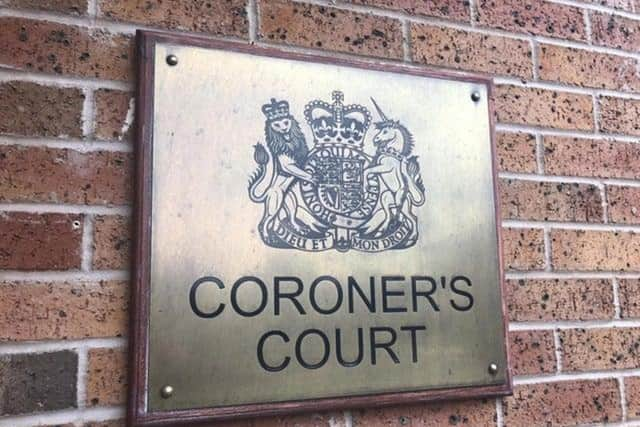Doctors and support workers could not have averted death of 20-year-old man from Chesterfield, inquest finds
and live on Freeview channel 276
Jared Botham, 20, passed away at Chesterfield Royal Hospital on January 4 2015. He was suffering from bowel obstruction and ischemia, which caused him to go into cardiac arrest twice before he died.
The coroner, Peter Nieto, at Chesterfield Coroner’s Court, said that the ischemia was likely triggered by lesions, a common medical complication caused by abdominal surgery that Jared underwent as a child.
Advertisement
Hide AdAdvertisement
Hide AdDuring his childhood, Jared struggled with bowel problems and could not gain weight. In 2008, he was diagnosed with mitochondrial cytopathy, a genetic condition that affects the muscles and nervous system. He used a wheelchair and also had learning difficulties.


He was described as “popular” and “outgoing” by Mr Nieto, who said that his death had “left a hole in the lives of his family and those who knew him.”
Jared required residential care, and in 2013, was moved from Yewtrees in Chesterfield to an assisted living site on Church Close, Inkersall, run by Ability Care - a Clay Cross based community care company.
Jared’s mum, Victoria Whitehouse, raised concerns during the inquest about the care that her son received at the facility. These related to the lack of a handover plan and the way the family were involved with Jared’s care.
Advertisement
Hide AdAdvertisement
Hide AdMr Nieto, however, said that he could not find that any acts or omissions by Jared’s GP, doctors or support workers had contributed to his death. He said that, while these concerns may have been legitimate, they were not issues for the inquest as they were not related to how Jared died.
On January 2 2015, one of Jared’s support workers contacted his GP as he felt unwell with sickness, diarrhoea and stomach pain. Staff were instructed to contact the out-of-hours service run by Derbyshire Health United if his condition got worse.
On January 3, staff grew concerned for Jared and the out-of-hours service was contacted at 5.41pm. A triage nurse took down Jared’s symptoms and had a doctor call back in 20 minutes.
A doctor called back at 6pm, and diagnosed him with Gastroenteritis. Mr Nieto said it was unclear whether the notes from the triage nurse were accessed prior to this diagnosis.
Advertisement
Hide AdAdvertisement
Hide AdSupport workers then contacted DHU again that evening at 10.08pm, and a doctor recommended an urgent home visit within two to four hours.
Staff at Church Close rang an ambulance for Jared at 10.30pm. He suffered a cardiac arrest when he arrived at the hospital and circulation was restored. He was sent for a CT scan but went into cardiac arrest again, from which he did not recover.
Presenting his findings, Mr Nieto said: “I make no criticism at all of the support staff, my judgement is that they sought medical advice appropriately as and when their concerns increased. There is no reason to consider they were unaware of his medical problems.
“They followed the introductions on when to seek medical advice with Jared’s bowel condition, and his support worker rightly went beyond the advice of the DHU doctor and rang an ambulance.”
Advertisement
Hide AdAdvertisement
Hide AdMr Nieto said that the Gastroenteritis diagnosis was reasonable with the information available, along with the fact that another resident in Jared’s bungalow had a viral stomach bug.
He did, however, state that an urgent home visit should have been arranged as Jared was clearly unwell and needed a face-to-face medical assessment. While an alternative decision should have been made here, Mr Nieto said it would not have prevented Jared’s death, as it is likely he would have made it to Chesterfield Royal Hospital at a similar time.
Mr Nieto did recommend that DHU make it easier for doctors to refer to nurse triage notes on their system. No preventing future deaths reports were issued for DHU or Ability Care.